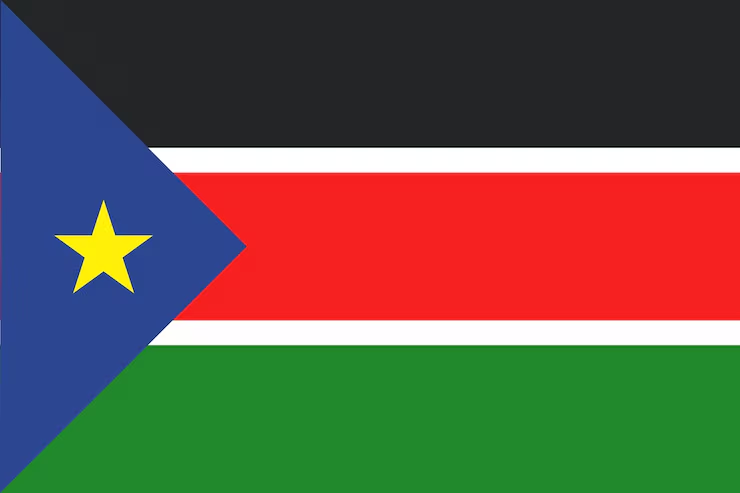The three main jobs of South Sudan's payment rails are to make it easier for banks to do business, to let people send money through their phones, and to help new financial systems grow.
South Sudan is the youngest country in the world, and its economy is still growing. Digital tools are becoming a lifeline for growth, even though there aren't many banks and people rely on cash a lot. Banking services, mobile money, and new fintech products are having a bigger and bigger impact on these South Sudanese payment systems that move money between people, businesses, and organisations.
This article looks at how mobile money is used in South Sudan, how banking services are available, how digital payments are starting to grow, and how fintech and remittance services can help people get more access to financial services.
The Current Ways to Pay in South Sudan
Right now, most payments in South Sudan are still made in cash. People still use cash for everyday expenses because there aren't many ATMs and it's hard to get to banks. But things are starting to change as projects to improve South Sudan's financial infrastructure open up new possibilities for digital transformation.
Here are some important things that affect the payments environment:
Low Banking Access: Fewer than 10% of people in South Sudan have a bank account. So, most people are not part of the official financial system.
More and more people are getting mobile phones, and in South Sudan, mobile money has become a useful alternative to banks.
Dependency on Remittances: Families in South Sudan mostly depend on remittance services to send money home from other countries or the diaspora.
Support from the Government and Nonprofits: The government and nonprofits are working to make cashless payments better in South Sudan so that they can be used to send aid and pay salaries.
When looked at together, these parts show the problems and chances that come with updating South Sudan's payment systems.
Mobile Money: Helping the Economy Grow
The rise of mobile money has been the biggest change in South Sudan's economy in the past few years. Telecom companies have stepped in to offer mobile payment services and digital wallets because there aren't many banks or ATMs.
How mobile money works in South Sudan:
Cash-in Points: Customers give agents money, which is then stored digitally in their mobile wallets.
Peer-to-Peer Transfers: People can send money to friends and family members all over the country right away.
Merchant Payments: Small businesses and stores are starting to use mobile platforms to accept payments directly.
Cash-out Options: Users can get real cash from agents when they need it.
This system is helping South Sudan get more bank accounts. It's also important for humanitarian aid, because non-governmental organisations send digital vouchers to people in need through mobile channels.
Getting to a bank in South Sudan
Even though digital channels are becoming more common, banking access is still very limited in South Sudan. Most banks are in Juba and a few other cities, so rural areas don't get enough service.
Some of the problems are:
Few Branches: There aren't many banks or ATMs outside of big cities.
High Barriers: Many people don't have the right paperwork to set up an account.
Low Trust: People don't want to use official banking services because there have been years of war and instability.
Still, there are plans to make the connection between mobile money and banks stronger. Some banks are now working with telecom companies to make systems that let mobile wallets connect to bank accounts for transfers and savings. This is helping to create new digital payment systems in South Sudan.
New Systems and Digital Payments
For digital payments to have a future in South Sudan, it is very important to build reliable and connected systems. Banks, mobile money providers, and international networks all need to work together.
Some of the most important new systems are:
Digital Payroll: The government is working to set up digital payroll so that civil servants don't have to get paid in cash.
NGO Platforms: Mobile money channels are used to send aid to people in need.
Merchant Solutions: Fintech companies have made it possible for local stores to accept payments through POS and QR codes.
Cross-Border Transfers: Systems are being linked with Kenya, Uganda, and Ethiopia to make it easier and faster to send money to South Sudan.
Even though there are still problems with the infrastructure, the move to cashless payments in South Sudan is speeding up.
Also read: Togo’s Payment Rails & How They Work – GIM-UEMOA, Mobile Money & Expanding Instant Transfers
Remittances: A Lifeline for Families
A lot of South Sudan's economy depends on the money that foreigners send home. In South Sudan, remittance services are very important for families, and they often make up a large part of their income.
Families used to use unofficial ways or regular money transfer services like Western Union. Fintech companies and telecoms are now working with global platforms to make it possible to send money from one wallet to another and from one bank to another.
This has been very helpful in many ways:
- faster transfers.
- lower costs.
- better and safer options.
It is important to make money transfers in South Sudan more secure for families and long-term growth, since remittances make up a large part of the country's GDP.
Financial Inclusion Programmes
Expanding financial inclusion programmes is the key to reducing poverty and boosting economic activity in South Sudan. The government, fintech companies, and NGOs are working together to:
- Offer savings and small loans through mobile platforms.
- Teach people in rural areas how to use digital money.
- Make it easier for people to open bank accounts by making KYC rules less strict.
- Give women power by making mobile money services in South Sudan easy to use.
Millions of people who are currently not in the financial system will be brought in.
TransFi: Helping South Sudan Grow
Even though things have gotten better, it's still hard to connect South Sudan's financial systems to international ones. In this case, TransFi could help.
TransFi gives companies, NGOs, and banks the tools they need to take part in digital payments in South Sudan. These are some of the services:
- Mobile Money Integration: Helping businesses reach out to people who use mobile money.
- Banking Solutions: Linking banks with digital wallets to improve banking services in South Sudan.
- Support for Remittances: Making it faster, cheaper, and safer to send money to South Sudan.
- Fintech Enablement: APIs that help new businesses make new ways to pay for things online.
If your business wants to improve its payment processes or expand into South Sudan, get in touch with TransFi sales to learn more about customised solutions.
Things to Get Over
There are still big problems to solve, even though the future looks bright:
- Limited access to electricity and the internet makes it hard for people to use digital technology.
- Interoperability is limited because mobile money networks don't always connect with each other.
- As rules change all the time, fintech companies may not know what to do.
- A lot of people don't know how to use digital financial tools safely and don't know much about money.
To move South Sudan to digital finance, these problems need to be fixed.
Conclusion
The financial system in South Sudan is slowly changing. South Sudan is getting closer to payment systems that include more people. For example, the country has adopted mobile money and made it easier to open bank accounts. Cash is still the most common way to pay, but new digital payment systems in South Sudan are helping the country grow in the long term with the help of fintech companies and money sent from other countries.
Financial institutions, non-profits, and businesses all have chances and problems in South Sudan. By working with the right providers, like TransFi, stakeholders can make South Sudan's payment systems better, get more people to use cashless transactions, and help millions of people get financial services.
FAQs
1. What are the main ways that people in South Sudan pay for things?
Cash, mobile money platforms, and limited bank services are the main systems. Digital payments are getting more popular, even though they are still fairly new.
2. How does mobile money work in South Sudan?
You can deposit cash with agents, store it digitally, send or receive it right away, and take it out when you need it.
3. How easy is it to get to banks in South Sudan?
Access to banks is very limited, especially outside of big cities. Some banks are working with mobile money companies to offer more services.
4. Why are remittances important in South Sudan?
Remittances are a big part of how families make money. Families depend on money transfers from relatives who work abroad, and digital platforms have made these transfers faster and cheaper.
5. How can businesses in South Sudan connect to the payment rails?
They can use services like TransFi, which gives banks, remittance platforms, and mobile money access to infrastructure and APIs.
Table of Contents
Suggested Article
Explore our products

Make global payments at the speed of a click

Accept payments, remove borders.

Unlock Seamless Digital Currency Transactions Anywhere
























